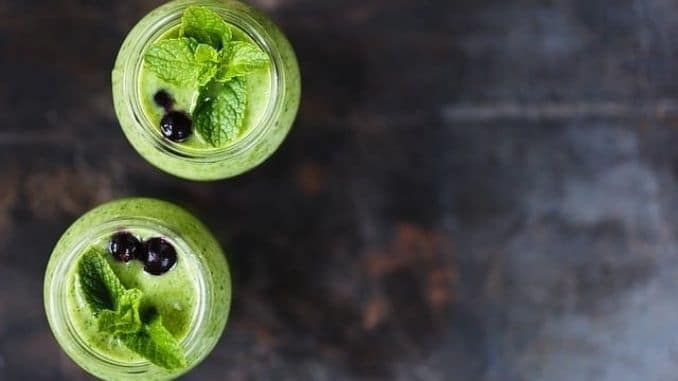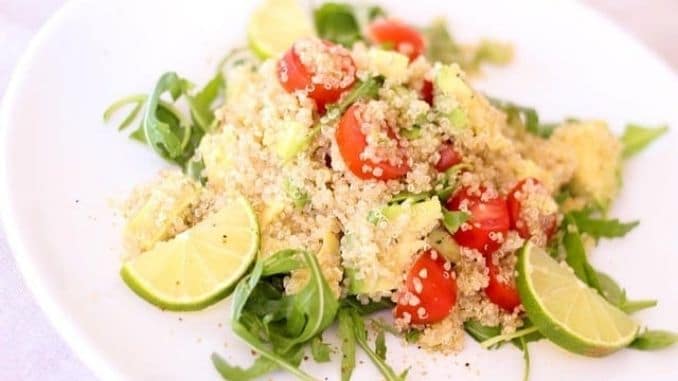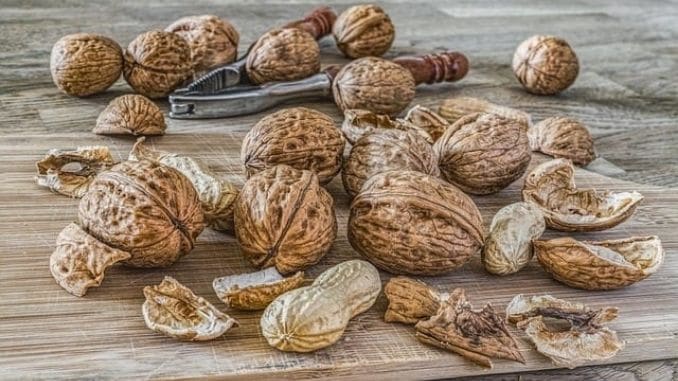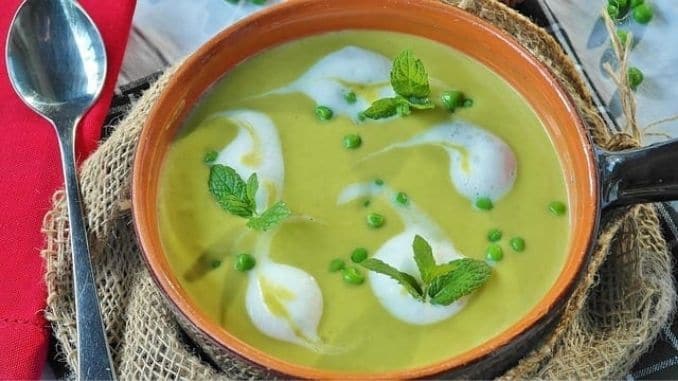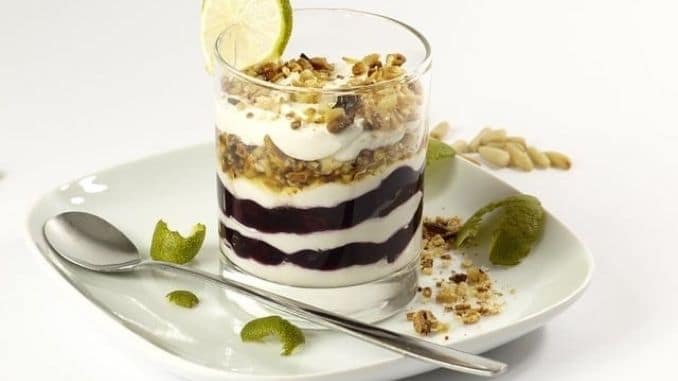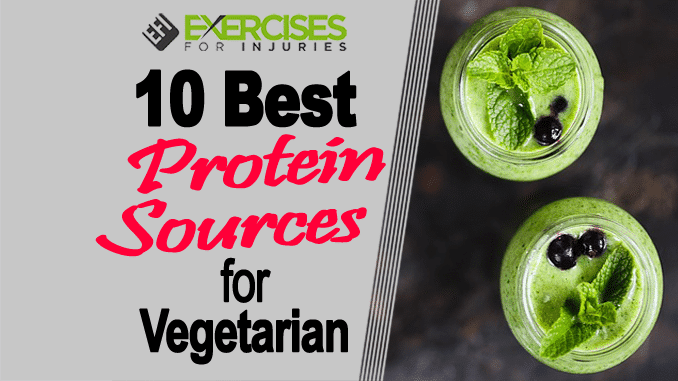
The Vegetarian Times reported in 2008 that 7.3 million Americans were vegetarians, or 3.2 percent of the population. Another 11.9 million were “definitely interested” in following a vegetarian-based diet in the future.
Why has vegetarianism become so popular? There are many reasons, but one stands out — it may help you live a healthier life.
Researchers have reported that plant-based diets may lower body mass index (BMI), blood pressure and cholesterol levels, reduce the number of medications needed to treat chronic diseases, and lower heart attack and mortality rates. Vegetarian diets also seem to work better in helping people to lose weight and keep it off. One 2009 study even reported that reducing the consumption of protein found in meat might slow the aging process.
But there is one concern with going meatless, and that is protein. Do vegetarians get enough? After all, meat is the food we tend to think about most when it comes to boosting protein levels.
It turns out that, in most studies, vegetarians seem to do just fine. Most eat some animal products like fish, dairy products and eggs as well as several plant-based foods, many of which contain protein. Vegans, who avoid all animal-based products, may have more of a challenge, but as long as they’re aware of how much protein they’re eating, they usually do just fine too.
The daily recommended amount of protein is 0.8 grams per kilogram of body weight, which translates to about 56 grams/day for the average man and 46 grams/day for the average woman. For comparison sake, a cup of chopped chicken contains about 44 grams of protein and a serving of Greek yogurt has about 20 grams.
Studies show this isn’t sufficient for optimal health, however, and that several factors can affect the amount of protein you need. These include your activity level, muscle mass, age and current state of health. If you’re lifting weights, for example, you’ll likely need more.
Meanwhile, if you’re already on a vegetarian diet, or if you’re thinking about it, you may wonder about the best sources of protein for you. Here are 10 of the healthiest we could find!
What is a Vegetarian?
First, to clarify exactly what we’re talking about — a vegetarian lives on a diet of grains, legumes, nuts, seeds, vegetables, fruits and perhaps some animal foods including dairy products, fish, honey and eggs.
Some vegetarians may choose to eat dairy products but not eggs or fish, or they may eat eggs and dairy products but not fish. People make their choices based on not only what they think is good for their health but also on their concern for animal welfare and the health of the environment.
The vegan diet, another related diet, includes no animal products at all, including honey.
10 Best Protein Sources for Vegetarians
1. Quinoa (8 grams per 1-cup serving)
Best Protein Sources for Vegetarians: Many people think that quinoa is a grain, but it’s actually a seed. Called the “gold of the Incas,” it has more protein than any other grain or seed, along with a crunchy, nutty flavor. It contains all the amino acids the body can’t manufacture by itself and is a good source of B vitamins, which vegetarians need.
You can prepare quinoa similar to how you would brown rice or barley. It works great in salads or stir-fries and can even serve as a stand-in for oatmeal if you choose quinoa flakes. It cooks faster than other whole grains and tastes great on its own with a little olive oil or sea salt.
2. Tempeh (15 grams per 1/2-cup serving)
Talk about a good source of protein! Tempeh has a lot per serving, and it’s a complete protein that gives you the amino acids you need. It’s made by fermenting cooked soybeans, so it’s not only a good source of protein but healthy probiotics too. Once the fermented beans are cooked, they’re formed into a firm, dense cake. Many versions contain grains, beans and flavorings too.
If you haven’t tried it before, don’t worry — it tastes nothing like tofu. It’s less processed and contains more fiber. It has a nutty flavor with a firm texture and works well as a meat substitute for sandwiches, chili and stir-fries. Tempeh is also low-fat, a good source of calcium and iron and easy to cook. Slice it or dice it and cook it.
3. Chickpeas and Other Beans (about 15 grams per 1-cup serving)
Beans are so versatile and easy to add to any meal. Use them more often and you won’t have any trouble getting enough protein. Two cups of kidney beans, for example, can give you about 26 grams of protein — about the same as a large burger.
Chickpeas (also called garbanzo beans) and other bean varieties are also good sources of folate, potassium and other nutrients and can help reduce cholesterol and control blood sugar levels. One more benefit, because of their high-fiber content, beans can help you feel fuller, longer, which may contribute to your weight-loss efforts.
If you’d like to add more protein to your baked goods, you can use chickpea flour as a wheat alternative. You can use it just about anywhere you’d use other flour to make pancakes, sauces and gravies, snacks and sweets and more.
4. Nuts and Nut Butters (about 5-6 grams per ounce)
10 Best Protein Sources for Vegetarians: Nuts are a staple of the vegetarian diet and for good reason. They’re an excellent source of fiber and healthy fatty acids and also contribute to your daily protein intake. Nut butters have about the same nutrient profile — just look for those that don’t include hydrogenated oils or lots of added sugar.
When you eat nuts and nut butter, you’ll also get several nutrients, including B and E vitamins, magnesium, selenium and calcium. The healthiest options are nuts that are raw as blanching and roasting can damage some of the nutrients.
5. Chia Seeds (2.5 grams per tablespoon)
OK, these aren’t as high in protein as the other foods on this list, but they do contain all nine essential amino acids, making this a “complete” protein that’s good for vegetarians. Chia seeds also provide a good amount of healthy fatty acids as well as fiber to keep you full.
The nice thing about this protein source is that you can add it into a lot of other things. Try it in your morning smoothie or sprinkled over your salad. Stir some into your morning oatmeal or yogurt or soak them to form a pudding-like dessert. Keep them around and use them as you will to add in a little protein when you need it.
6. Spinach (5 grams per 1-cup cooked serving)
Best Protein Sources for Vegetarians: Spinach is a powerhouse of good-for-you nutrition and, come to find out, it’s also a good source of protein! One cup contains almost as much as one hard-boiled egg, but it has fewer calories and lots of phytochemicals and antioxidants to help optimize your health. Studies have linked the compounds in spinach to decreasing the risk of heart disease, diabetes and even cancer. It also contains lutein and zeaxanthin, which are critical to eye health.
You can use spinach as a vegetable on its own, but it also works well in green smoothies, baked pasta, soups and omelets and to make quiche.
7. Seitan (21 grams per 1/3-cup serving)
10 Best Protein Sources for Vegetarians: This is a meat substitute made from wheat gluten, so if you’re sensitive to gluten or have celiac disease, this is not the option for you. Otherwise, you may like it as it works well in recipes that call for poultry. It’s made by mixing gluten with herbs and spices, then simmering it in broth. It also provides some of the mineral selenium.
You can use seitan in any recipe that calls for meat or poultry, including stir-fries, fajitas, sliders and more. Grill, saute or fry it.
8. Green Peas (9 grams per 1-cup serving)
Is there anything more comforting on a cold, winter day than a bowl of pea soup? These little green legumes pack a powerful protein punch, and they also give you about 25 percent of your daily fiber along with vitamins A, B, C and K. Minerals include iron, zinc, magnesium and phosphorus. Peas also contain phytonutrients and antioxidants that can protect you from disease.
If environmental concerns are involved in your decision to become a vegetarian, consider this: peas are an environmentally friendly food. They give the soil nutrients that it needs, including nitrogen while they’re growing. They have shallow roots that help prevent erosion, and can even lower the risk of pest problems when rotated out with other crops. Use them as a side dish and in soups, salads or pasta.
9. Greek Yogurt (29 grams per one-cup serving)
10 Best Protein Sources for Vegetarians: If you’re a vegetarian who’s open to some dairy products, Greek yogurt should be on your shopping list. Not only is it super high in protein but it also contains probiotics that have shown to not only ease digestion but potentially help reduce the risk of a number of health problems.
The gut contains a lively community of microflora, which are good and bad bacteria that affect your health. The goal is always to have more good than bad bacteria, but that balance can be upset by a number of things, including stress, poor diet, digestive problems, antibiotic treatment and more. Consuming foods high in probiotics can help restore balance and strengthen the immune system.
Particularly if you’re a vegetarian who’s trying to build muscle, a daily serving of Greek yogurt is a great idea. Just avoid those packed with added sugar.
10. Pumpkin Seeds (9 grams per ounce)
If you’re looking for a healthy, high-protein snack, look no further. Pumpkin seeds fit the bill, and they’re also a great source of magnesium, which helps control blood pressure and reduce the risk of heart disease. They contain vitamin E and carotenoids, which work as antioxidants in the body and have been linked in some studies to lower levels of lung, breast, stomach and other cancers.
You can snack on these when you like, add them to your salads, sprinkle them over oats or add them to your homemade pancakes. You can also add pumpkin seed protein powder to your smoothies, shakes and juices.
For your guide to the best foods to heal your body, check out The Best Foods that Rapidly Slim & Heal in 7 Days, here!

